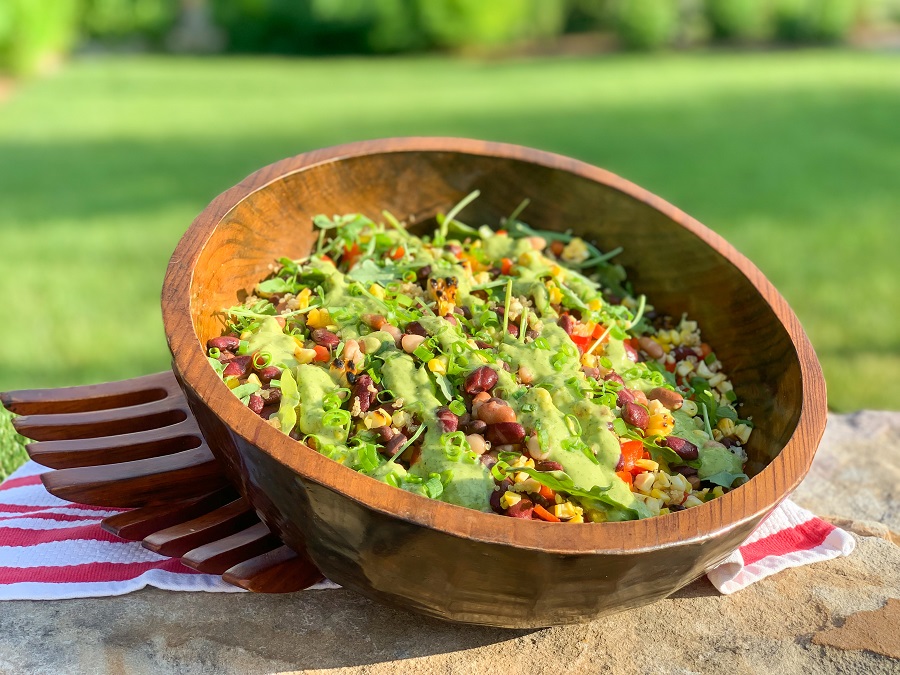
Have you heard about the Whole-Food, Plant-Based Diet?
In recent years, this dietary movement has been growing in popularity and has begun to be adopted by many all over the world.
The diet in many ways on the surface seemingly holds very similar values and practices to those that follow a vegan diet. With that, some seem to believe that in some ways it is replacing the vegan diet altogether!
Is that true? Let’s take a closer look and learn more about this growing food movement to find out.
What is the Whole-Food, Plant-Based Diet?
We all know that the main tenet of a vegan diet is the complete removal of any and all animal products including meat, poultry, fish, dairy, and eggs from one’s diet. Everything else is fair game, making many vegan diets consist of fruits, vegetables, grains, and beans.
By just hearing the name, you may come to the conclusion that something called the Whole-Food, Plant-Based diet would have a very similar outlook on animal products. That is where, despite the name, this diet and the vegan diet diverge.
The primary emphasis of the Whole-Food, Plant-Based diet is the avoidance of heavily-processed foods (the “whole foods” part) and centering one’s diet primarily on plant foods (the “plant-based” part) like fruits, vegetables, whole grains, and beans. While that is somewhat similar, a Whole-Foods, Plant-Based diet does in fact allow for a minimal amount of animal products to be incorporated into the diet, so long as they aren’t heavily processed.
So, while similar, one diet is not “replacing” the other. In fact, you can even technically follow both diets at the same time!
The Benefits of a Whole-Foods, Plant-Based Diet
Similar to those who make the switch to a vegan diet, many are turning to the Whole-Food, Plant-Based movement for its health benefits.
The whole fruits, vegetables, grains, and beans that make up the center of the diet are loaded with vitamins and nutrients that can help with heart health, weight management, and the limiting of high sugar from processed foods can help prevent the development of diabetes.
Start with Randall Beans
Thinking about adopting the Whole-Foods, Plant-Based diet into your lifestyle? There is no better place to start than with a jar of Randall Beans! Beans are a perfect protein alternative to those looking to minimize the amount of animal products they consume both as the centerpiece of a meal like a soup or stew, or a compliment such as a way to improve a simple salad. Plus, if you want a plant-based ingredient that is going to nourish your body with nutrients you need to live a healthy life both physically and mentally, look no further than beans.
And as for using only whole, non-processed foods, Randall Beans are as fresh a product as you’ll find in the center aisle of your grocery store. Fully cooked beans, water, and a pinch of sugar and salt to help keep them fresh: those four ingredients are the only things you’ll find in our beans. We don’t use any additives or heavy processing to make our beans delicious and healthy, they just are!
If your 2020 resolutions include trying to focus on a Whole-Food, Plant-Based diet, vegan diet, or even just a more health-conscious diet, grab a few jars of Randall Beans and see for yourself just how healthy, delicious, and versatile they can be for your new diet.
Here are a few Whole-Food, Plant-Based recipes featuring Randall Beans to get you started.
Fiesta Mixed Bean Salad with Creamy Avocado Poblano Dressing
This is just a start! Many of Randall Beans original recipes in our library satisfy the requirements for those following both vegan and Whole-Food, Plant-Based diets. Visit our library and check out our collection of free cookbooks to find more delicious bean recipes to enjoy no matter what diet you follow.

